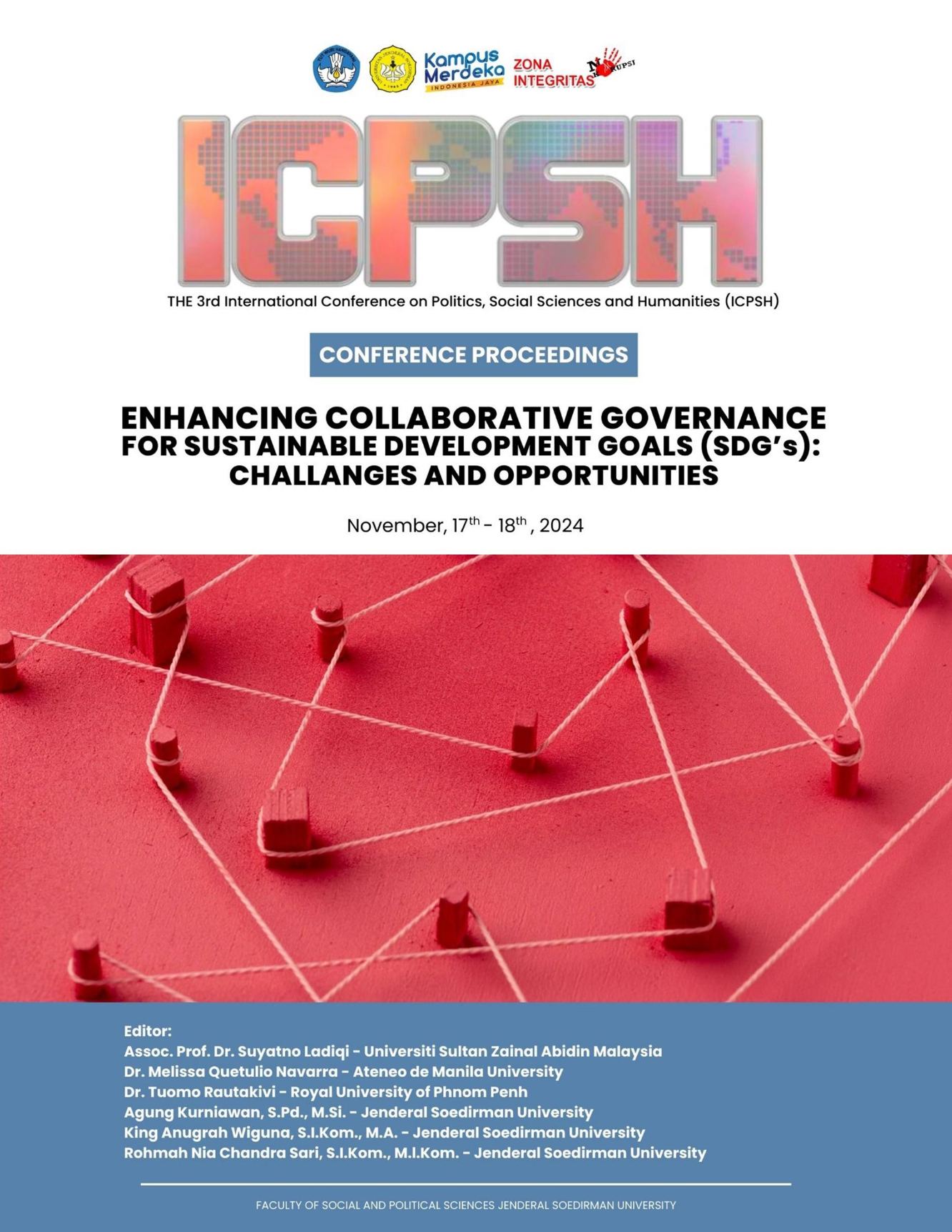Collaborative Governance in Ecotourism Development: A Case Study of Banyumas Regency, Indonesia
Abstract
Ecotourism is expanding quickly, which has brought attention to the need for efficient management techniques that strike a balance between economic growth and environmental preservation. This study examines the application of collaborative governance in the development of ecotourism in Banyumas Regency, Indonesia. The study seeks to evaluate the influence of collaborations among local government, business entities, and community stakeholders on sustainable ecotourism management. Utilizing a qualitative descriptive methodology, data was gathered via in-depth interviews, participatory observation, and document analysis. The results indicate that collaborative governance has favorably impacted ecotourism management in Banyumas Regency, as demonstrated by heightened community engagement, improved environmental conditions, and augmented local economic well-being. The study illustrates that all sectors—government, private, and community—display equal dedication to tourism development as a sustainable initiative. This research enhances the existing knowledge on collaborative strategies in ecotourism management and offers insights for policymakers and practitioners aiming to adopt analogous models in different places.



